What does home mean to you? What might it mean to somebody else? And how can collections from The National Archives evoke different thoughts and feelings around home?
Between 2021 and 2023, The National Archives worked with Noel Hayden, specialist in Special Educational Needs and Disabilities, and the members and staff of Share Wandsworth and Mencap Bexleyheath to create an online multi-sensory resource based upon the theme of ‘home’.
Ways to engage with ‘home’
We used photographs, artwork, maps and textiles from our collections to encourage people to consider different types of home across the world and the members helped us to shape a resource that includes quizzes, explanatory videos, games and creative activities.
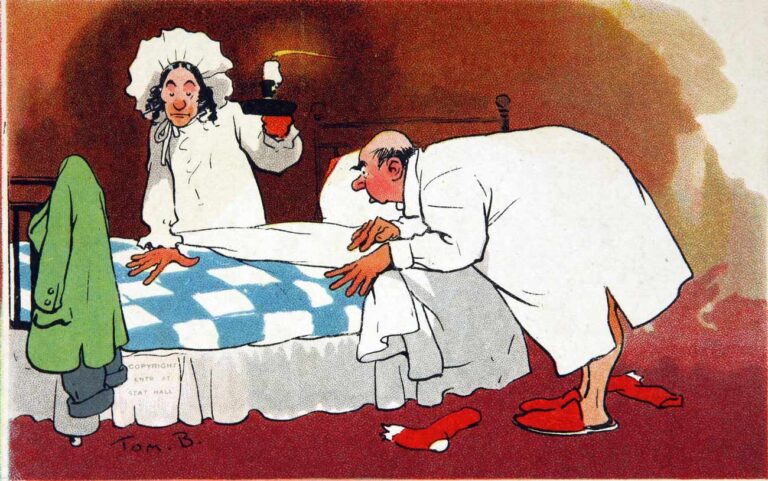
We discussed how different homes were constructed and what people wanted in a neighbourhood. Some needed easy access to shops and transport, others to be close to friends or family, and many valued outdoor spaces for relaxation.
Favourite activities at home included sewing, cooking, watching TV and personal collections (including shells, cuddly toys, even aprons!) and we discussed the smells, sounds and feelings associated with home and the people they lived with. We talked quite a lot about pets…!
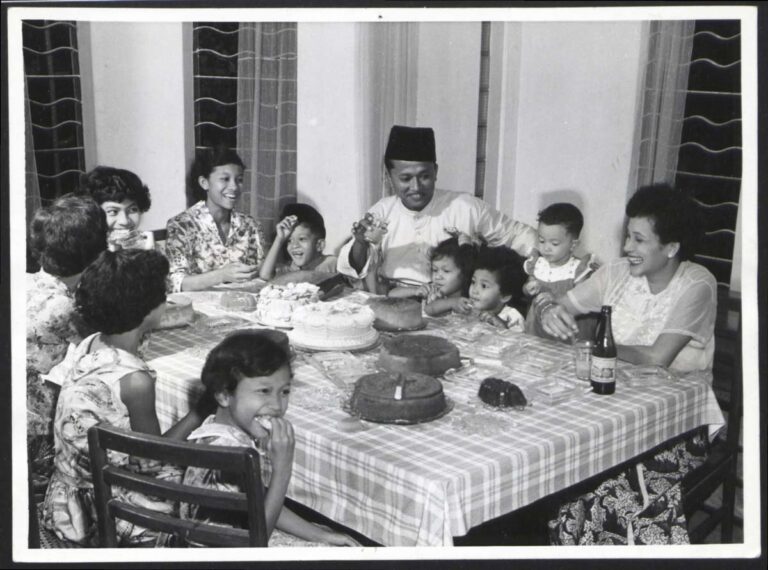
The National Day of Arts in Care Homes
‘Home’ is also the theme of this year’s campaign for Arts in Care Homes (AICH) led by The National Activity Providers Association (NAPA), the UK’s predominant activity and engagement charity. Although many people have resumed life as before, concerns around COVID-19 still prevail, and for them, home continues to be the place that they felt safest. With The National Archives as a key partner in this campaign, care services can use our multi-sensory activities and prompts for discussion as part of a person-centred care approach.
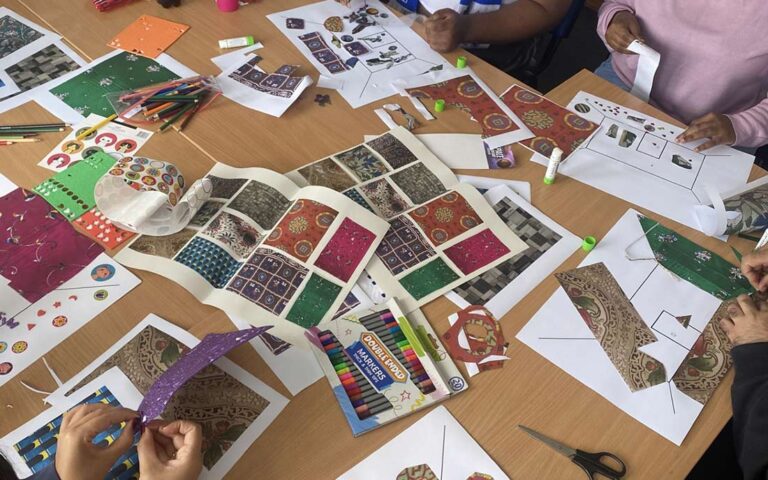
Creative activity has great value in helping people with their mental health and our resource includes such distractions, such as decorating front doors and rooms from our templates or upcycling materials in an ambitious model house-making exercise.
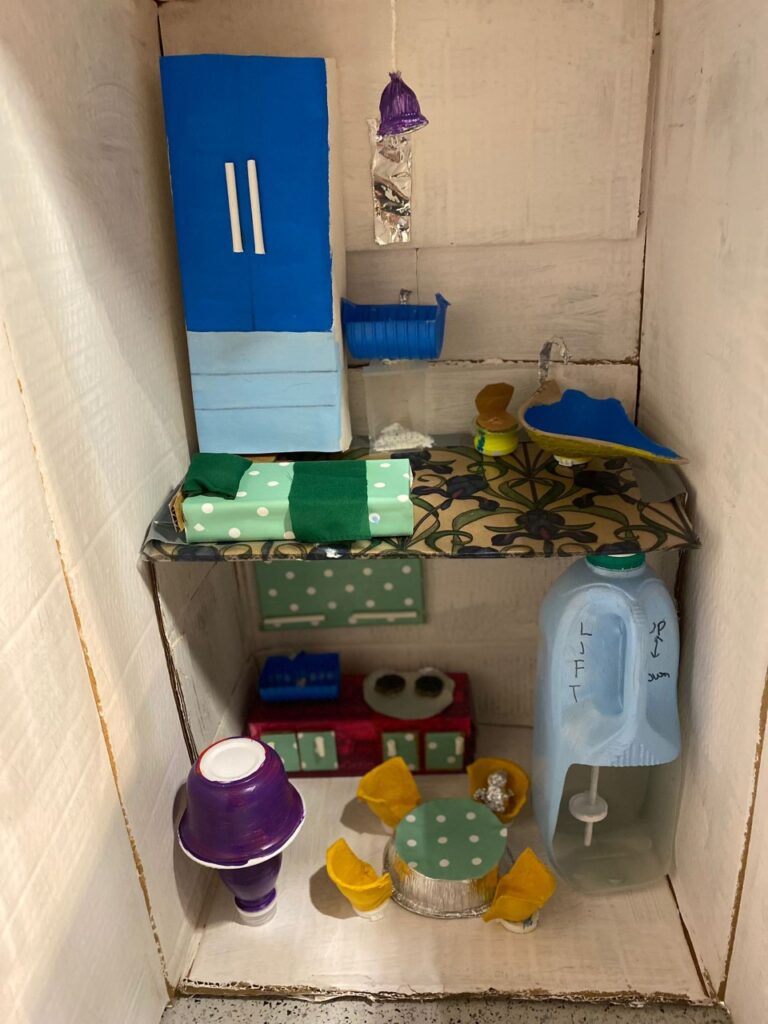
We were guided by the participants whose interest in exploring towns across the world on Google Earth encouraged us to create imaginative map-based exercises for fun. We used feedback from staff at Mencap and Share to write a Guide for Helpers to assist carers and activity coordinators using the resource with others.
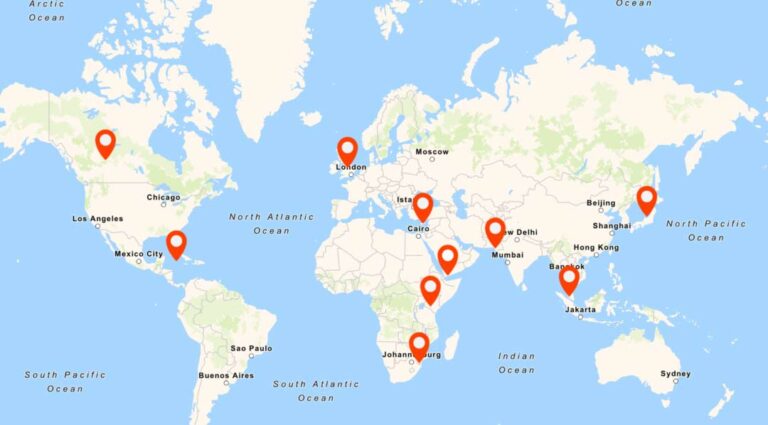
‘I really love the videos with Noel, the wonderful array of images including the Innuit igloo and the cat with two dogs. All of the activities too are excellent and so well pitched. The sounds game is great fun, and I loved matching the old household items with the modern equivalent.’
Rachel
Designing and building the web resource
There were two important aspects we had to take into consideration when designing and building the web resource. First of all, it had to look appealing and interesting to browse. Secondly, it had to be accessible and easy to use.
Since the focus of the resource is on the photos from our collection, we wanted to make these the most eye-catching part of the webpages. Each photo is as big as our website allows and can be clicked on to zoom in further. Although there is a large amount of content in the resource, dividing it up and making the menu easy to navigate helped make it easier to go through.
There were some difficulties that we encountered in making the resource compliant with WCAG 2.2 AA standards (web accessibility standards). For example, we wanted to include quizzes, as initial feedback from consultations showed that these would be essential elements of engagement and interactivity. However, we were unable to find an external quiz maker that had an accessibility statement adhering to these web accessibility standards. After months of searching, we finally found the platform Qualtrics. Although it was mainly a survey platform rather than quiz maker, it had both the functionality and accessibility standards we needed!
Our consultations at Share Wandsworth and Mencap Bexleyheath were extremely helpful to see how users were actually interacting with the website. We found that even small changes could make a big difference; for example, adding a ‘previous’ and ‘next’ button on each page, or making the navigation menu less wordy.
The in-person consultations have been by far the most fun and rewarding parts of this project – from seeing people discuss their memories of different locations in the interactive map to hearing cheers when participants saw Noel in the videos. We’re taking this resource into schools now, but we hope a wide variety of people find joy and reflection through the resource!
Get in touch
Please share it with those you think might be interested or contact us at outreach@nationalarchives.gov.uk if you would be interested in working with us on this or similar initiatives.